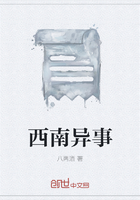"Well, for one thing, as I told you, I thought 1 ought to consider her family. Then there was a good fellow, the crown-prince of Saxe-Wolfenhutten, who was dead in love with her, and was engaged to her before I turned up. I had been at school with him, and I felt awfully sorry for him; and I thought I ought to sacrifice myself a little to him.
But I suppose the thing that influenced me most was finding out that if Imarried the princess I should have to give up my American citizenship and become her subject.""Well?" Boyne panted.
"Well, would you have done it?"
"Couldn't you have got along without doing that?""That was the only thing I couldn't get around, somehow. So I left.""And the princess, did she--die?"
"It takes a good deal more than that to kill a fifteen-year-old princess," said Trannel, and he gave a harsh laugh. "She married Saxe-Wolfenhutten." Boyne was silent. "Now, I don't want you to speak of this till after I leave Scheveningen--especially to Miss Lottie. You know how girls are, and I think Miss Lottie is waiting to get a bind on me, anyway. If she heard how I was cut out of my chance with that princess she'd never let me believe I gave her up of my own free will?""NO, no; I won't tell her."
Boyne remained in a silent rapture, and he did not notice they were no longer following the rest of their party in the other carriage. This had turned down a corner, at which Mr. Breckon, sitting on the front seat, had risen and beckoned their driver to follow, but their driver, who appeared afterwards to have not too much a head of his own, or no head at all, had continued straight on, in the rear of a tram-car, which was slowly finding its way through the momently thickening crowd. Boyne was first aware that it was a humorous crowd when, at a turn of the street, their equipage was greeted with ironical cheers by a group of gay young Dutchmen on the sidewalk. Then he saw that the sidewalks were packed with people, who spread into the street almost to the tram, and that the house fronts were dotted with smiling Dutch faces, the faces of pretty Dutch girls, who seemed to share the amusement of the young fellows below.
Trannel lay back in the carriage. "This is something like," he said.
"Boyne, they're on to the distinguished young Ohioan--the only Ohioan out of office in Europe.""Yes," said Boyne, trying to enjoy it. " I wonder what they are holloing at."Trannel laughed. "They're holloing at your Baedeker, my dear boy. They never saw one before," and Boyne was aware that he was holding his red-backed guide conspicuously in view on his lap. "They know you're a foreigner by it.""Don't you think we ought to turn down somewhere? I don't see poppa anywhere." He rose and looked anxiously back over the top of their carriage. The crowd, closing in behind it, hailed his troubled face with cries that were taken up by the throng on the sidewalks. Boyne turned about to find that the tram-car which they had been following had disappeared round a corner, but their driver was still keeping on. At a wilder burst of applause Trannel took off his hat and bowed to the crowd, right and left.
"Bow, bow!" he said to Boyne. "They'll be calling for a speech the next thing. Bow, I tell you!""Tell him to turn round!" cried the boy.
"I can't speak Dutch," said Trannel, and Boyne leaned forward and poked the driver in the back.
"Go back!" he commanded.
The driver shook his head and pointed forward with his whip. "He's all right," said Trannel. "He can't turn now. We've got to take the next corner." The street in front was empty, and the people were crowding back on the sidewalks. Loud, vague noises made themselves heard round the corner to which the driver had pointed. "By Jove!" Trannel said, "I believe they're coming round that way.""Who are coming?" Boyne palpitated.
"The queens."
"The queens?" Boyne gasped; it seemed to him that he shrieked the words.
"Yes. And there's a tobacconist's now," said Trannel, as if that were what he had been looking for all along. "I want some cigarettes."He leaped lightly from the carriage, and pushed his way out of sight on the sidewalk. Boyne remained alone in the vehicle, staring wildly round;the driver kept slowly and stupidly on, Boyne did not know how much farther. He could not speak; he felt as if he could not stir. But the moment came when he could not be still. He gave a galvanic jump to the ground, and the friendly crowd on the sidewalk welcomed him to its ranks and closed about him. The driver had taken the lefthand corner, just before a plain carriage with the Queen and the queen-mother came in sight round the right. The young Queen was bowing to the people, gently, and with a sort of mechanical regularity. Now and then a brighter smile than that she conventionally wore lighted up her face. The ****** progress was absolutely without state, except for the aide-de-camp on horseback who rode beside the carriage, a little to the front.
Boyne stood motionless on the curb, where a friendly tall Dutchman had placed him in front that he might see the Queen.














